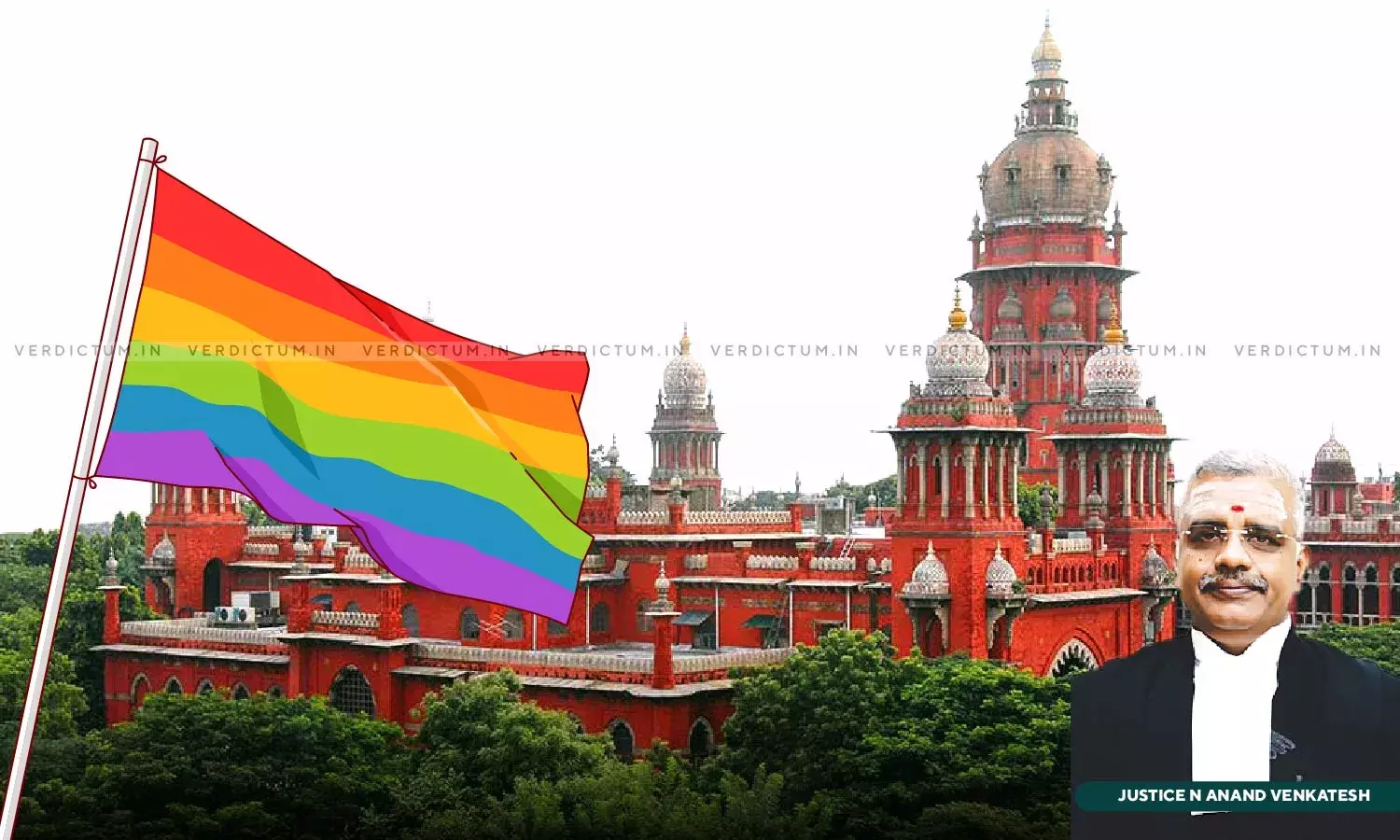Madras HC Stresses Need for Curriculum Overhaul, Says LGBTQIA+ Identities Are Not Psychological Disorders
The Madras High Court has reiterated that individuals from the LGBTQIA+ community do not suffer from any psychological disorder and called for urgent corrections in educational curriculums to reflect this understanding.
The Court emphasized the importance of removing misconceptions and urged authorities to implement necessary changes to foster inclusivity and awareness. "This Court has been urging right from the beginning that there is no psychological disorder involved in a person belonging to the LGBTQIA+ community and such a mistaken understanding must be corrected by making appropriate changes in the curriculum," the Court said.
The Single-Judge Bench of Justice N. Anand Venkatesh expressed dissatisfaction with the slow progress in approving a draft module prepared by the National Council of Education Research and Training (NCERT) for integrating transgender issues into the school curriculum.
The module has been pending approval from the Ministry of Women and Child Development for over two years, despite plans for its introduction in the current academic year.
"A lot of effort has been taken to prepare the draft module which provides for integrating the concerns of transgender persons in schooling processes. The matter has been pending before the 24th respondent for quite a long time. That part, it was planned to make this module operational during this academic year. However, the academic year has already commenced and the Ministry is yet to react to the draft module submitted by NCERT," the Court said.
"This Court expects the 24th respondent viz., the Ministry of Women and Child Development, to show more sensitivity to this issue and act upon the draft module submitted by NCERT. The 24th respondent must necessarily give some priority for this issue since it has been going back and forth for the last two years. Therefore, there shall be a direction to the 24th respondent to act upon the draft module that has already been submitted by NCERT and to make it operational. It will enable the concerns of the transgender persons to be understood at the school level. Hence, this Court expects the 24th respondent to comply with the direction and report compliance during the next date of hearing," the Court added.
The Court underscored the importance of educating students about transgender issues to promote inclusivity and directed the Ministry to expedite the process. It also addressed the National Medical Commission's (NMC) recently published medical curriculum, which continues to use outdated and harmful terminology, such as “Gender Identity Disorder.” It criticized the use of such terms, directing the NMC to immediately revise the curriculum to remove the word "disorder" and submit a report detailing the changes.
Additionally, the Court reiterated its stance on banning conversion therapy, a harmful practice aimed at altering an individual's sexual orientation or gender identity. The Court emphasized that the 2023 regulations being finalized by the NMC must explicitly classify conversion therapy as professional misconduct.
The Court also dealt with the issue of registering Non-Governmental Organizations (NGOs) and Community-Based Organizations (CBOs) working for the welfare of the LGBTQIA+ community. While the registration process has closed, the Court directed authorities to verify the legitimacy of registered organizations and left the possibility open for reopening the portal for unregistered organizations.
In response to a state government request, the Court granted a three-month extension for finalizing a separate policy to uplift transgender persons, which is expected to include provisions for reservations in public employment and education. Justice Venkatesh made it clear that no further extensions would be granted beyond this period.
The case will be heard again on January 6, 2025, when compliance reports from the NCERT, NMC, and the Ministry of Women and Child Development will be reviewed.
Pertinently, on January 29, the Court had granted time for the State Government to undertake a larger consultation with the stakeholders regarding the Tamil Nadu Gender and Sexual Minority (LGBTQ+) Policy. The Court had stated that before the implementation of the final policy, the interests of stakeholders, especially those from the transgender community, need to be addressed. The Court had also stated that the policy needs to be translated into Tamil to ensure a broader reach and increased response from stakeholders. It had noted that “there is an assurance that the operationalization of the policy will prioritize the benefits of individuals belonging to the transgender community.”
The Bench had observed, “The unveiling of the Tamil Nadu Gender and Sexual Minority (LGBTQ+) Policy is a commendable stride towards recognizing and addressing the rights and welfare of trans and intersex individuals within the state. The policy underscores a notable commitment to empowerment and inclusivity, articulating detailed rights related to movement, property, and public office for the LGBTQ+ community.”
Cause Title: S.Sushma & Anr. v. Director General of Police & Ors.
Click here to read/download the Order




